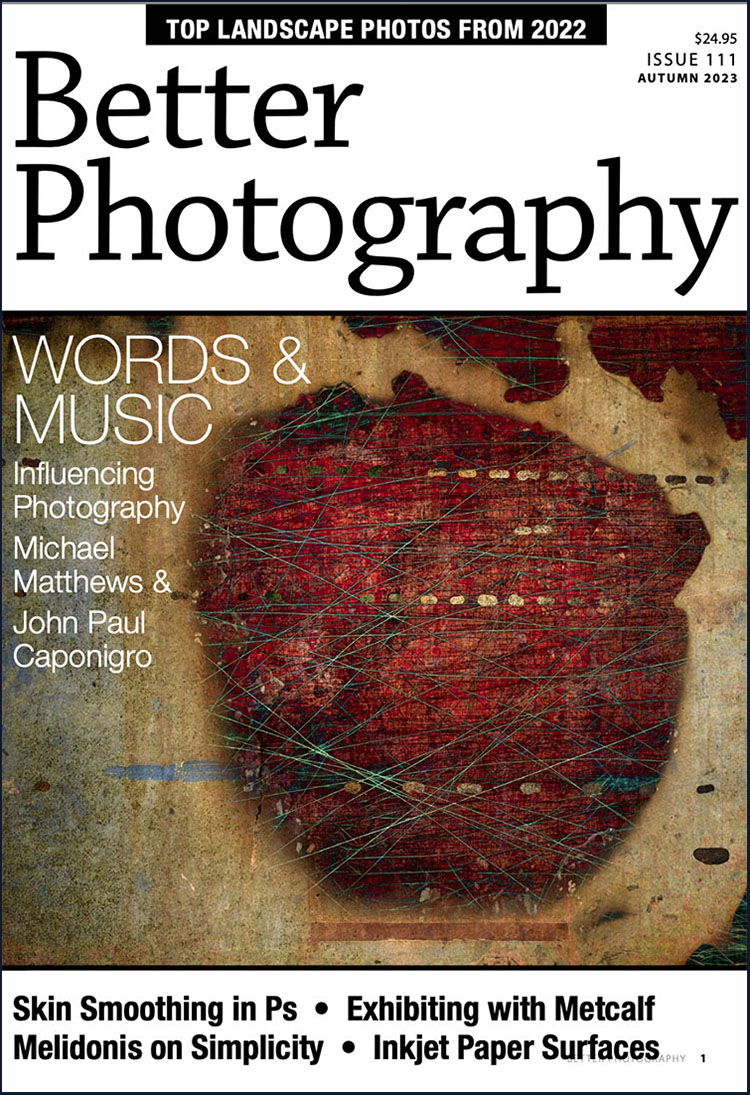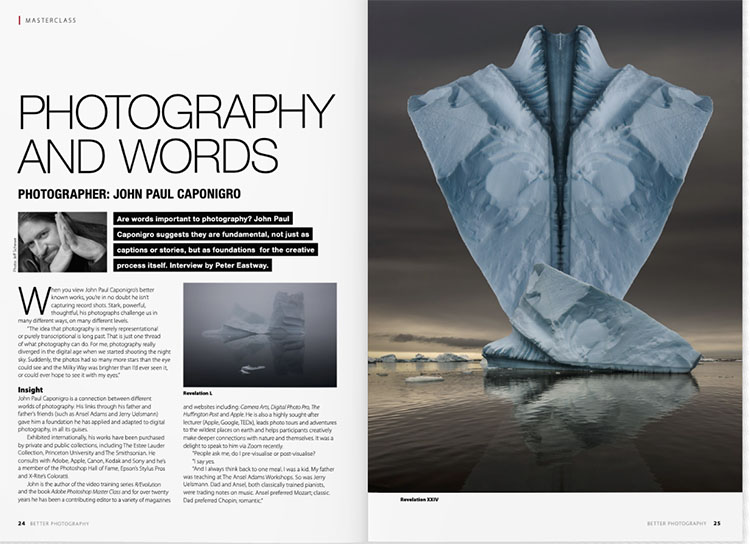Photography & Words – On Better Photography With Peter Eastway


“Have you noticed how all photographers have favourite stories that tell of being in a certain place at a certain time and making a photograph that really excited them? People love to hear these stories.”
Recently I had a wide-ranging conversation with Peter Eastway, a great Australian photographer and the publisher of Better Photography magazine. We talked about visualization, the creative process, and how words can be useful for photographers.
Here’s an excerpt …
Words Can Help
John suggests that writing is far better at describing intangibles than photography. Sure, we can make photographs that represent love or freedom, but the language we’re using can be ambiguous. Not every viewer will pick up on what we’re doing. Many will have their own interpretations, so perhaps our own use of words in association with our photographs can make things clearer. “I think it depends on the kind of journey you want to create for your viewers. I was just looking at Eliot Porter’s Antarctica book, and I was surprised by how heavy the captions were and how dense the text that separated different sections in the book was. It’s not right or wrong; it’s just one kind of experience. However, a problem with words is that they can limit the viewers’ experience by not leaving enough room for the viewer. But words that are open, generative, and don’t close things down can be very engaging. “I think a lot of artists are uncomfortable with words because it’s not a skill they’ve developed. But good words have helped me understand art much better. They didn’t destroy the mystery; they enhanced it.”
Think of an artist giving a talk at an exhibition or presenting a slide show of images. Would you expect the artist to just sit there and say nothing? Or would you want to hear what’s going on inside the artist’s mind, inside their heart? John has a slide show about Antarctica on his website, and his voice-over provides an added dimension to the presentation. With the words, I felt I knew a lot more about John, his personality, and his approach to photography. There was a synergy.
But if you have never written about anything in your life, how do you start to write about something that can be as personal as photography? It can already be challenging enough to show our photographs to others; now we’re supposed to write about them as well? John has some practical suggestions, beginning with telling a story. “Have you noticed how all photographers have favourite stories that tell of being in a certain place at a certain time and making a photograph that really excited them? People love to hear these stories. What it was like to be there? What were you thinking? What were you feeling? What did you learn? You don’t have to say or write big fancy words or even have it all perfectly composed. You can keep your language really simple, just like you talk. One of the things you can try is to imagine you’re having a conversation with a mate and tell them the story. Transcribe what you say and maybe clean up the ‘umms’ and the ‘ahhs,’ but it doesn’t have to be fancy language. In fact, simple direct language will communicate with other people better. Most people get turned off by ‘art speak’, and most people do not want to read a 3000-word essay. But we love short stories. In fact, the human brain is hooked on them. So, telling one of your stories is a great starting point, and having hung out with some of the ‘greats’ of photography, you don’t need a lot of them. They were constantly telling the same stories. Dad had half a dozen stories he’d tell time and time again. How many celebrities did Arnold Newman photograph, yet he generally used the same small number of stories.” A short story can be used as a caption or an introduction. It allows you to position the viewer closer to you so they better understand what your photograph is about, but, as John emphasises, without making things so tight, there isn’t room for your viewers to use their own imagination.
Read the full article. Visit Better Photography Issue 111.

